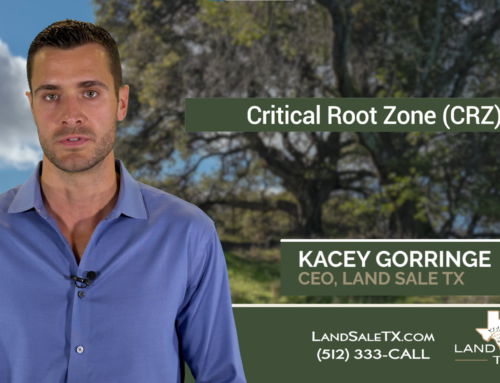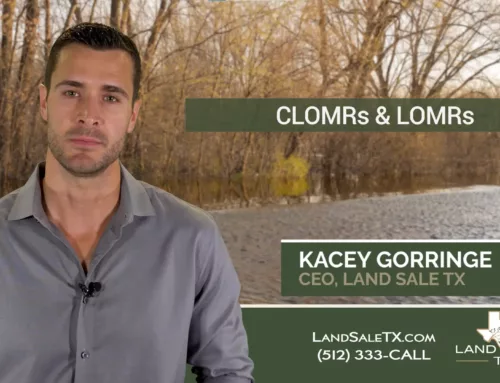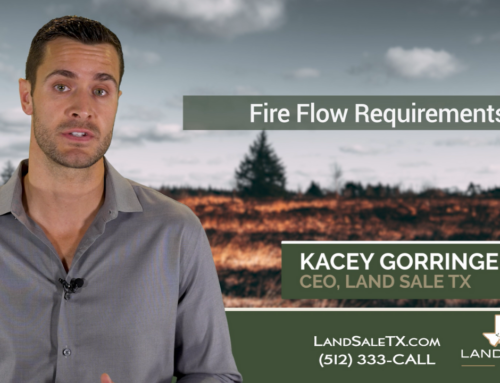Whether you own or are buying or selling land in Texas (hopefully with the help of Land Sale TX 😉), one thing is for sure – you’re bound to come across snakes on rural TX property. How to avoid them, what to do if you do see one and how to identify the four most deadly species in TX.
I’m sure you’ve heard the phrase that “everything is bigger in Texas” and there’s no exception when it comes to the number of snakes in Texas when compared to other states. Believe it or not, Texas has over 115 different species of snakes. Luckily, there are only about four different types of species of snakes that are actually venomous. That being rattlesnakes, coral snakes, copperheads and cottonmouths, also referred to as water moccasins.
Rattlesnakes are probably the most synonymous when it comes to poisonous snakes in Texas. Luckily, rattlesnakes have that signature rattle of their tails that they usually do before striking. An interesting adaption with rattlesnakes and wild hogs here in Texas is that rattlesnakes have stopped rattling their tails in some parts of Texas because wild hogs will track snakes down and kill them when they hear that. So, it’s unfortunate, always just be very wary when walking through wooded or grassy areas.
Next is the coral snake. I’m sure you’ve heard “red & yellow will kill a fellow.” So, coral snakes have these colored bands on their skin and if red touches yellow than that is indicative of a coral snake. Coral snakes are highly venomous. Luckily though, the saving grace with coral snakes is that you rarely hear of a fatal bite because there mouths are so small it makes it hard for them to bite large prey, such as humans. Next, you have copperheads and copperheads get their namesake from their copper heads and a lot of people think that they are more dangerous than rattlesnakes, for example, because they don’t have that signature rattle and they blend in so well in their environment – usually deadfall areas where there are a lot of leaves. So, typically in the Hill Country, copperheads blend in so well. So, just be careful when walking around.
And then, lastly, you have cottonmouths. Again, mentioned earlier, they are also called water moccasins. They’re called cottonmouths because the inside of their mouths are white. And, with cottonmouths, they’re usually around bodies of water. So, unfortunately, they can even bite under water. There was a gentleman that got fatally bitten in the Bastrop area a couple years ago from a cottonmouth or water moccasin.
So, how do you protect yourself when walking through areas? I mean, just do your research, be wise. I always recommend wearing snake boots or thick cowboy boots when walking a piece of land. And, if you do come across a poisonous snake, a lot of people will just kill it out of fear. It’s best not to do that, because they play a vital role in the ecosystem keeping rodents at bay, for example. So, I would just recommend that you hire a snake specialist to come remove it, obviously
if it’s in your backyard, around children, near a school, just remove the snake.
Feel free to reach out to us with questions or other topics you’d like to see covered.
🤠 We’re Your Local & Trusted Central TX Land Buyers serving Travis, Williamson, Caldwell, Bastrop & Hays counties. Subscribe to our YouTube Channel for weekly tips and insight into land buying, land selling, and real estate investing from our seasoned land acquisition specialists. SUBSCRIBE: https://tinyurl.com/hcfnsyk8
💻 Want a Cash Offer for your land in 24 hours or less with No Agent Fees or Closing Costs? Learn more: CONTACT US: https://landsaletx.com/contact/
☎️ Looking to sell your Central TX land quick & stress-free -OR- Interested in investing in land in the area, we’d love to tell you about some of the off-market opportunities we find through our marketing. CALL or TEXT Us Today at (512) 387-7749.
SOCIALS: @LandSaleTX
Facebook: https://www.facebook.com/LandSaleTX/
Instagram: https://www.instagram.com/landsaletx/
⚠️ We are NOT attorneys, licensed CPAs or Tax Professionals. We can provide honest, ethical and creative solutions for selling or investing in land, but ALWAYS recommend you get advice from your attorney, CPA and Professional Tax Advisor.


